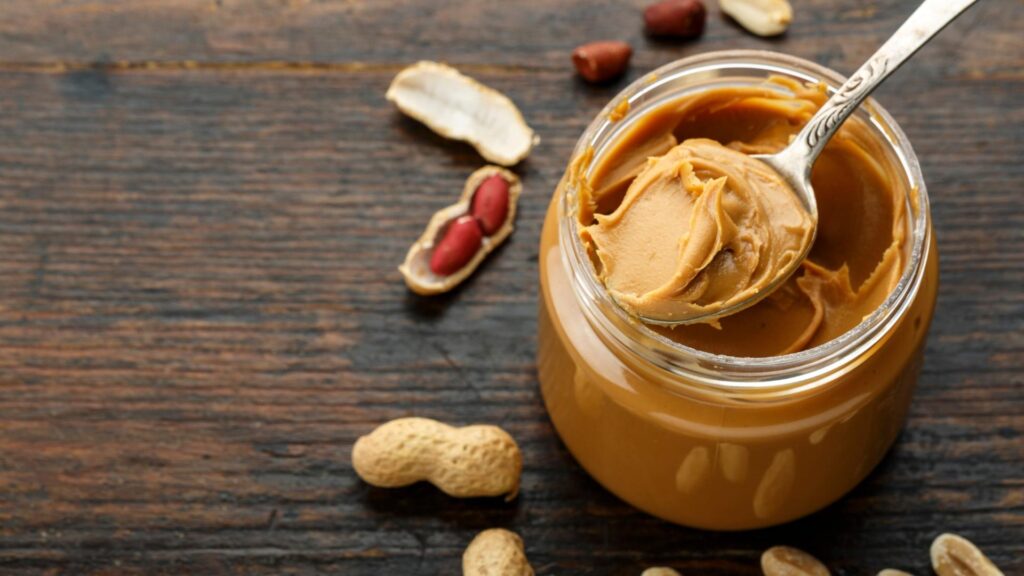Peanut butter can be a nutritious addition to a balanced diet, offering several health benefits. Here are some advantages of consuming peanut butter:
- Rich in Nutrients: Peanut butter is a good source of essential nutrients, including protein, healthy fats, vitamins, and minerals. It contains important nutrients like vitamin E, magnesium, phosphorus, and niacin.
- Protein Content: Peanut butter is a relatively high-protein food, making it a good option for those looking to increase their protein intake. Protein is essential for building and repairing tissues, and it plays a crucial role in muscle development.
- Healthy Fats: While peanut butter is calorie-dense, it primarily contains heart-healthy monounsaturated and polyunsaturated fats. These fats can contribute to overall cardiovascular health by helping to lower bad cholesterol (LDL) and increase good cholesterol (HDL).
- Fiber: Peanut butter contains dietary fiber, which is beneficial for digestive health. Fiber helps regulate bowel movements, supports a healthy gut microbiome, and can contribute to a feeling of fullness, aiding in weight management.
- Antioxidants: Peanuts and peanut butter contain antioxidants, including resveratrol, which may have anti-inflammatory and anti-cancer properties. Antioxidants help neutralize free radicals in the body, reducing oxidative stress.
- Nutrient Absorption: The healthy fats in slight butter can aid in the absorption of fat-soluble vitamins like vitamin E. Consuming peanut butter with foods rich in fat-soluble vitamins can enhance the absorption of these nutrients.
- Energy Boost: The combination of protein, healthy fats, and carbohydrates in slight butter provides a sustained source of energy. This can be particularly beneficial for athletes or those needing an energy boost during the day.
- Blood Sugar Control: Despite being relatively low in carbohydrates, slight butter has a moderate glycemic index. The protein and fat content can help stabilize blood sugar levels and reduce the risk of spikes.
- Weight Management: Contrary to what some may think, moderate consumption of peanut butter can be included in a weight management plan. The protein and healthy fats can contribute to a feeling of fullness, potentially reducing overall calorie intake.
- Versatility: Peanut butter is a versatile food that can be used in various ways, such as spreading it on whole-grain bread, adding it to smoothies, or using it as a dip for fruits and vegetables. This versatility makes it easy to incorporate into a variety of meals and snacks.
While slight butter has numerous health benefits, it's essential to consume it in moderation, especially if you are watching your calorie intake. Additionally, opting for natural peanut butter without added sugars or hydrogenated oils is a healthier choice. Individuals with peanut allergies should, of course, avoid peanut butter or choose alternative nut or seed butters that are safe for them. As with any dietary choices, it's advisable to consult with a healthcare professional or a registered dietitian for personalized advice based on individual health needs.
